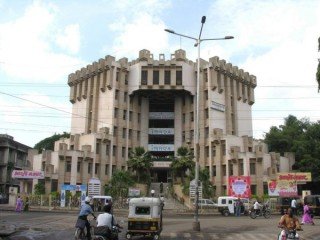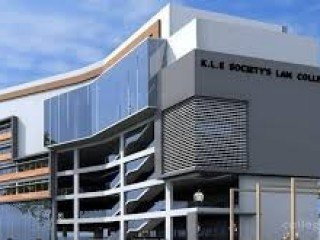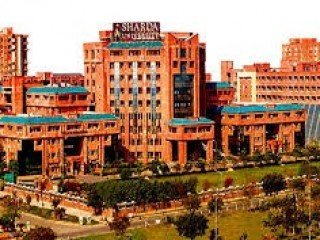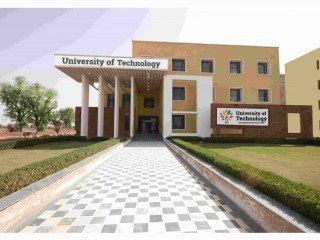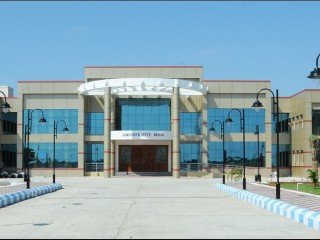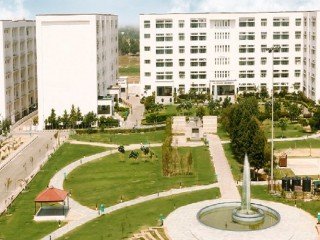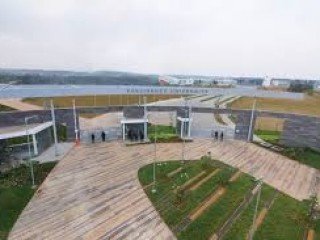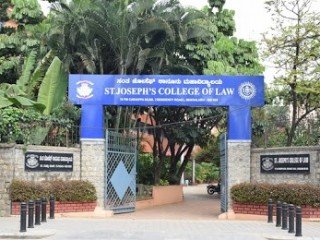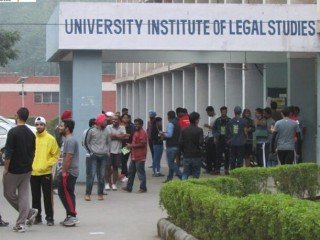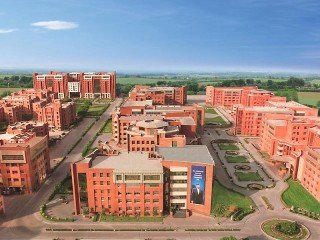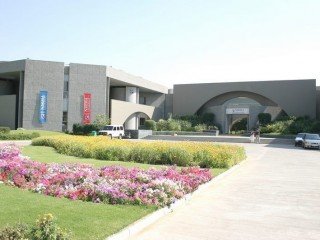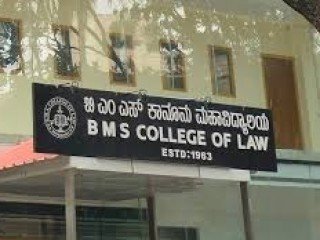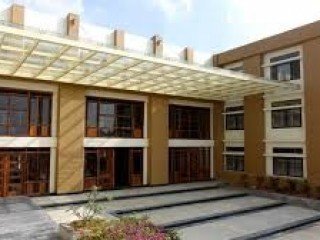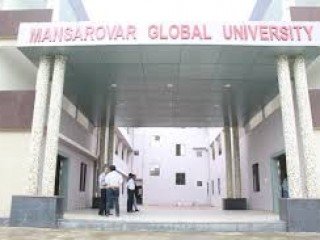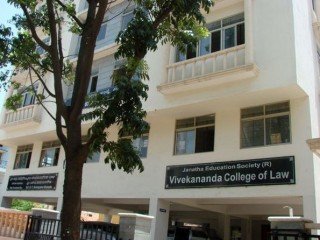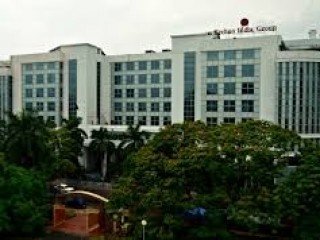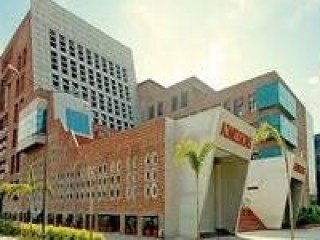MS RAMAIAH COLLEGE OF LAW Colleges
5 years ago - LAW - Bengaluru - 640 viewsObjectives
- Helping the youth to enrich their knowledge, fostering in them a love for learning, right attitudes and imbibing essential and up to date knowledge about legal rights and obligations.
- Creating awareness in the youth of the socio-economic and the legal needs of the country by tapping the hidden treasures in their personalities.
- Devoting itself to the cause of education in all fields with considerable interest and commitment to the country.
- Better appreciation of the functioning of law in the society.
About Us
The Gokula Education Foundation (GEF) was established in the year 1962 by Hon’ble Founder Chairman Dr. M. S. Ramaiah, a visionary, philanthropist and educationalist who pioneered a galaxy of institutions encompassing every field of Education with the sole objective of serving the society. Today it runs several educational institutions having independent infrastructure, faculty of high caliber with effective and interactive teaching skills.
In the year 1995, the Hon’ble Founder Chairman Dr. M S Ramaiah established a ‘Centre of Excellence’ in the area of legal studies with the noble mission of imparting quality legal education adopting a befittingapproach in a healthy academic atmosphere which has gone a long way in moulding the future of students to enable them to meet professional challenges with confidence and fortitude.
The college has contributed competent and value based professionals in the arena of law and this is evident from the fact, that some of its outstanding graduates have excelled in their profession and have also been working in distinguished law firms and companies.
 Five Year B.A., LL.B Integrated Course
Five Year B.A., LL.B Integrated Course
Student intake : 120 (60+60)
 Five Year BB.A., LL.B Integrated Course
Five Year BB.A., LL.B Integrated Course
Student intake : 60
 Five Year B.Com, LL.B Integrated Course
Five Year B.Com, LL.B Integrated Course
Student intake : 60
2 Year LL.M. Programme in Business & Trade Law
Student intake: 20
Certificate Course:
- Human Rights
- Law & Medicine
- Student Intake: 20 in Each Course
PROGRAMME OUTCOMES
At the end of the programme, a student is expected to:
- Demonstrate a sound understanding of the various substantive and procedural laws;
- Possess the ability to understand the role that law can play in finding solutions in the field of their chosen allied specialisations – social science, business administration or commerce;
- Demonstrate and uphold the highest standards of values of the legal profession;
- Possess the motivation to explore further opportunities to employ law as an effective means of bringing social change.
PROGRAMME SPECIFIC OUTCOME
B.A.LL.B.:
At the end of the course a student is expected to:
- Have the ability to understand the mutual relationship between law and social science;
- Understand how to use law as an instrument of social change;
- Attain the ability to propose legal solutions to the various socio-economic problems of the society.
B.B.A.LL.B.:
At the end of the course a student is expected to:
- Understand how to employ law in the establishment and management of a business enterprise;
- Have the ability to employ legal principles in business management and administration;
- Have a grasp of management principles and the ability to devise corporate legal solutions.
B.Com.LL.B.:
At the end of the course a student is expected to:
- Have a sound understanding of the financial operations in a business enterprise;
- Have the ability to understand the commercial and tax implications of a business decision;
- Have the ability to propose legally compliant commercial solutions to business enterprises
CONTENTS OF THE COURSE.
The subjects of study prescribed for the semester scheme shall be as under:
Courses Prescribed For the Five Year B. A., LL. B. Integrated Degree Course in Law
Syllabus of 5 Year BA LLB Integrated Course
| I Semester | |
|---|---|
| Course | I : English |
| Course | II : Major – I: Political Science |
| Course | III : Elements of Research |
| Course | IV : Minor – I(1): Sociology |
| III Semester | |
|---|---|
| Course – I | : Major – 3: Political Science |
| Course – II | : Major – 4: Political Science |
| Course – III | : Minor-I (2): Sociology |
| Course – IV | : Minor – II(2): Economics |
| II Semester | |
|---|---|
| Course – I | : Kannada / Special English |
| Course – II | : Major – 2: Political Science |
| Course – III | : Minor- II:(1): Economics |
| IV Semester | |
|---|---|
| Course – I | : Major – 5: Political Science |
| Course – II | : Major – 6: Political Science |
| Course – III | : Minor-I (3): Sociology |
| Course – IV | : Minor – II(3): Economics |
| V Semester | |
|---|---|
| Course – I | : Constitutional Law |
| Course – II | : Contract – I |
| Course – III | : Law of Torts |
| Course – IV | : Family Law – I: Hindu Law |
| Course – V | : Criminal Law – I: IPC |
| VI Semester | |
|---|---|
| Course – I | : Contract - II |
| Course – II | : Company Law |
| Course – III | : Property Law |
| Course – IV | : Administrative Law |
| Course – V | : Family Law – II: Mohemmadan |
| : Law & Indian Succession Act. |
| VII Semester | |
|---|---|
| Course – I | : Jurisprudence |
| Course – II | : Labour Law |
| Course – III | : Law of Taxation |
| Course – IV | : Criminal Law – II: Cr.P.C |
| Course – V | : Clinical Course – I |
| : Professional Ethics & |
| VIII Semester | |
|---|---|
| Course – I | : Public International Law |
| Course – II | : Optional – I: Human Rights |
| Law & Practice / Insurance Law | |
| Course – III | : Optional – II: Banking Law / |
| : Right to Information | |
| Course – IV | : Clinical Course – II: ADR’s |
| IX Semester | |
|---|---|
| Course – I | : Civil Procedure Code and Limitation Act |
| Course – II | : Optional |
| Course – III: Intellectual | Property Rights – I / Penology & victimology |
| Course – III : | Optional |
| Course - IV: | Interpretation of Statutes and Principles of Litigation / Competition Law |
| Course – IV : | Clinical |
| Course – III | : Drafting, Pleading & Conveyance |
| X Semester | |
|---|---|
| Course – I | : Law of Evidence |
| Course – II | : Environmental Law |
| Course – III | : Optional – V: Intellectual Property Rights – II / White Collar Crimes |
| Course – IV | : Optional – VI: Land Law / Law relating to International Trade Economics |
| Course – V | : Clinical Course – IV: Moot Court Exercises & Internship |
RULES OF THE COLLEGE
Dress Code
Students of the college are required to be in formal attire as prescribed by the college from time to time. On all formal occasions, students have to wear the college blazer. As per the KSLU circular students are required to wear Khadi Uniform on every Monday. Shorts, Jeans, Leggings / Jeggings, T-shirts, Canvas / Sports shoes are not permitted inside the college.
Discipline
Students are required to behave well at all times. Loitering around the college during the class hours, shouting and disturbing the classes, damaging the college property and indulging in physical violence with their fellow students are treated as acts of grave indiscipline. Students found guilty of such misconduct will be rusticated.
Eligibility Criteria For Admission
a. An applicant who has successfully completed Pre-University Course or Senior Secondary School course (‘+2’) or equivalent such as (11+1, ‘A’ level in Senior School Leaving Certificate Course) from a recognised University of India or outside or from Senior Secondary Board or equivalent, constituted or recognised by the Union or by the State Government or from any equivalent institution from a foreign country recognised by the government of that country for the purpose of issue of qualifying certificate on successful completion of the course, may apply for and be admitted into the course.
Provided that applicants who have obtained +2 Higher Secondary Pass Certificate or First Degree Certificate after prosecuting studies in distance or correspondence method shall also be considered as eligible for admission to the course.
Provided further that the applicants who have obtained 10+2 or graduation or post graduation through open Universities system directly without having any basic qualification for prosecuting such studies are not eligible for admission to the course.
b. Minimum percentage of marks in qualifying examination shall not be below 45% (44.5% and above shall be treated as 45%) of total marks in case of general category applicants and 40% (39.5% and above shall be treated as 40%) of total marks in case of SC and ST applicants.
c. Maximum age for seeking admission is limited to twenty years in case of general category of applicants and to twenty two years in the case of applicants from SC, ST and other backward communities as on 1 st June.








